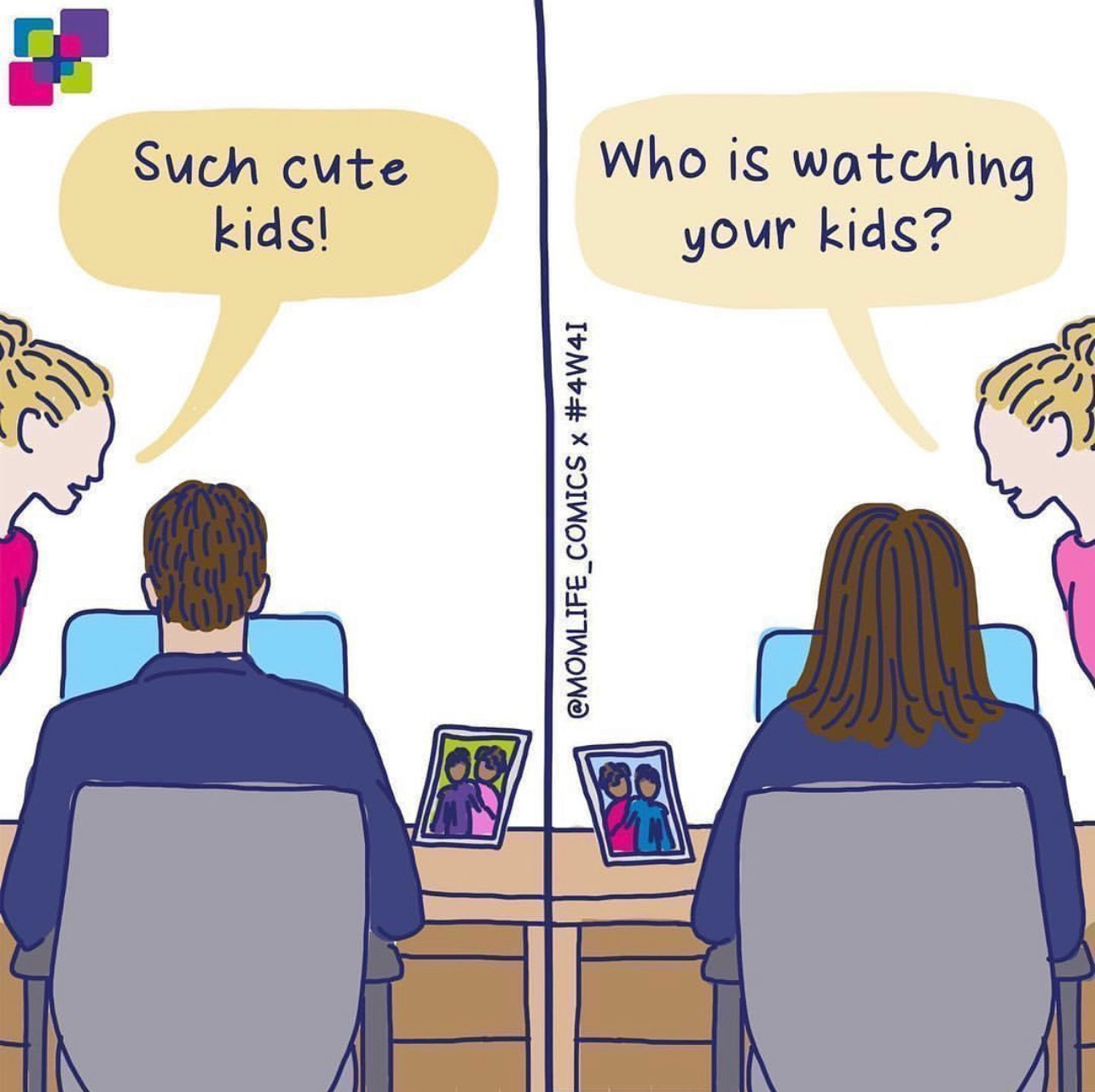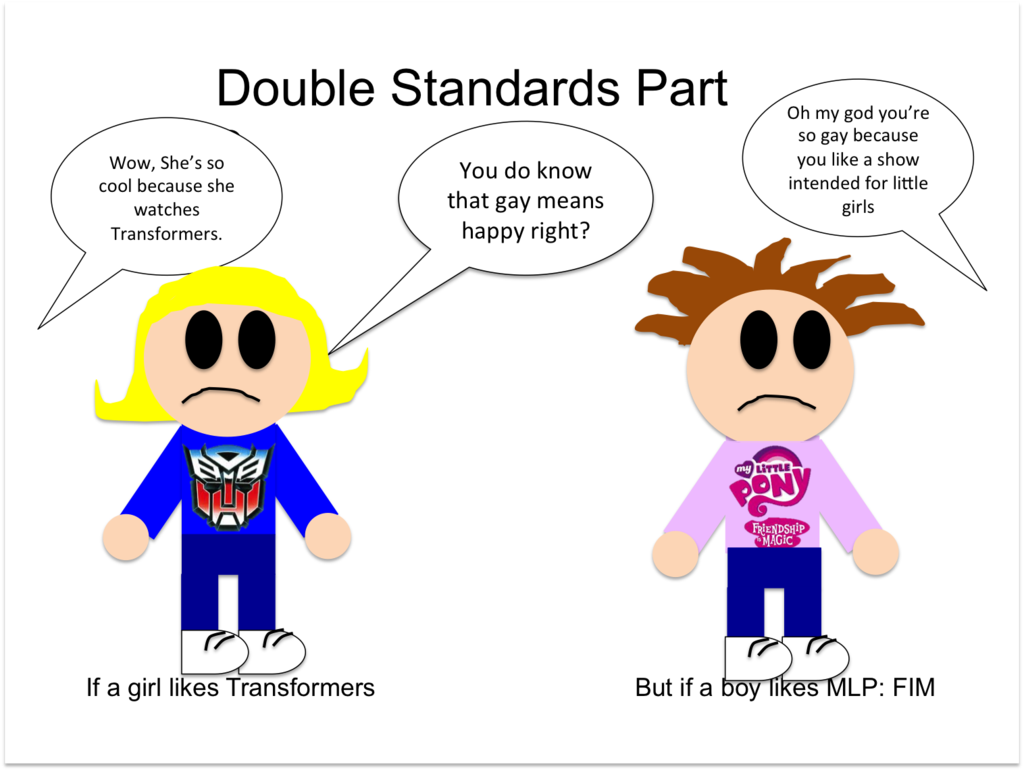Double Standard Meaning - Unpacking The Concept And Its Impact
Double standard meaning often comes up in discussions about fairness, equality, and justice. It's a term that describes situations where one group gets treated differently from another, even though the circumstances are similar. In everyday life, it might show up when people judge others by different rules, often without realizing it. These imbalances can happen in relationships, workplaces, and even social norms. By understanding what double standards are, we can start to recognize them and work toward more equitable practices.
It’s almost like there’s an invisible line drawn between how one group is expected to behave compared to another. For example, if a male employee gets praised for being assertive while a female colleague gets criticized for the same behavior, it points to a double standard. This concept is not new, yet it continues to affect many aspects of life. By exploring examples and real-life scenarios, we can better grasp why these differences matter and how they shape our world.
In some respects, double standards can creep into our daily decisions without us even noticing. Maybe it’s the way we expect different things from our friends or family members, or the way societal norms influence our judgments. Whatever the case, double standards have a way of subtly influencing how we interact with others. Let’s take a closer look at what they mean and how they impact our lives.
What Exactly is a Double Standard?
A double standard happens when the same rules or expectations aren’t applied evenly across the board. For instance, if one group gets more leniency while another faces stricter consequences, that’s a double standard. Think about it—sometimes, it’s really hard to see these differences until someone points them out. That’s why recognizing double standards is the first step toward making things fairer for everyone.
Why Do Double Standards Matter?
Double standards matter because they affect how people perceive fairness and equality. When one person or group gets treated differently from another, it can create resentment and frustration. For example, imagine a classroom where boys are allowed to bring snacks but girls aren’t. It might seem like a small thing, but over time, these little differences add up and can make someone feel undervalued or unfairly judged. Recognizing these patterns is key to addressing them.
How Do Double Standards Show Up in Relationships?
Double standards in relationships can be tricky because they often go unnoticed. Like, if one partner gets questioned about every little expense while the other gets a free pass, it creates an imbalance. It’s not just about money, though—it could be anything from household chores to personal interests. The important thing is to have open conversations about expectations and make sure both sides feel respected.
- Night Train Lane
- Listcrawler Queens
- Mikey Madison Once Upon A Time In Hollywood
- Listcrawler Atl
- Jayne Atkinson
Where Do Double Standards Come From?
Double standards don’t just appear out of nowhere—they tend to stem from societal norms, cultural expectations, or even personal biases. Sometimes, it’s the way we’ve been conditioned to think about certain groups or behaviors. For example, many people still believe that women should be more modest or reserved compared to men. These ideas might seem harmless, but they can lead to unfair treatment if we’re not careful.
It’s not always easy to spot these biases, especially when they’re deeply ingrained in our thinking. However, by paying attention to our own actions and assumptions, we can start to challenge them. Like, if we notice ourselves holding someone to a higher standard than another, it might be worth reflecting on why that is.
How Can We Identify Double Standards?
Identifying double standards isn’t as hard as it seems—it’s just a matter of asking the right questions. For example, if you find yourself judging someone harshly for something you’d overlook in someone else, that could be a sign of a double standard. Another way to spot them is by looking at patterns of behavior. Do certain groups consistently get treated differently? If so, it might be time to rethink those practices.
Can Double Standards Be Avoided?
It’s not always possible to completely avoid double standards, but we can definitely work toward minimizing them. One way to do this is by setting clear expectations upfront and sticking to them consistently. For instance, if both partners in a relationship agree on household responsibilities, there’s less room for unfairness. Similarly, workplaces can establish transparent policies that apply to everyone equally.
Examples of Double Standards in Everyday Life
Double standards show up in all sorts of situations, from workplace dynamics to social interactions. For example, in some cultures, men are encouraged to pursue ambitious careers while women are expected to focus on family life. These expectations can create barriers for women who want to succeed professionally. Another common example is in sports, where male athletes often receive more recognition and resources than their female counterparts.
In relationships, double standards might look like one partner being allowed to stay out late while the other is expected to be home early. Or, it could be something as simple as one person being praised for being outspoken while the other gets labeled as too aggressive. These differences might seem small, but they can have a big impact on how people feel about themselves and their relationships.
What Does Double Standard Meaning Look Like in Action?
Let’s take a closer look at how double standards play out in real life. Imagine a workplace where male employees are encouraged to take risks and think outside the box, but female employees are told to stick to the rules. This kind of imbalance can make it harder for women to advance in their careers. Similarly, in friendships, one person might get a pass for being late all the time while another gets criticized for the same behavior. These examples highlight the importance of treating everyone with the same level of respect and fairness.
Why Do Double Standards Persist Despite Efforts to Change Them?
Even though there’s been a lot of progress in promoting equality, double standards still persist in many areas. Part of the reason is that these attitudes are deeply rooted in history and culture. It’s not something that can be fixed overnight, but by continuing to challenge unfair practices, we can make a difference. Education, open dialogue, and awareness are all key to breaking down these barriers.
How to Address Double Standards in Relationships
Addressing double standards in relationships requires honesty and communication. If you notice that your partner is holding you to a different standard than themselves, it’s important to bring it up in a respectful way. For example, you could say, “I’ve noticed that I get questioned more about my spending than you do, and it makes me feel a bit unequal.” This kind of conversation might feel a little awkward at first, but it’s worth it in the long run.
Another approach is to work together to establish mutual expectations. By setting clear boundaries and agreeing on what’s fair for both sides, you can avoid misunderstandings and create a more balanced relationship. Remember, it’s all about finding common ground and making sure both partners feel valued and respected.
Double Standard Meaning - A Summary of Key Points
Double standards mean treating one group differently from another, often without good reason. They can show up in relationships, workplaces, and social norms, affecting how people perceive fairness and equality. By recognizing these imbalances and working to address them, we can create a more just and equitable world. Whether it’s through open conversations, setting clear expectations, or challenging societal norms, every little effort counts.
So, the next time you notice yourself or someone else applying different rules to similar situations, take a moment to think about why that is. Sometimes, all it takes is a little awareness and willingness to change to make a big difference.

15 Double Standards Examples (2025)

Double Standards | Mind Over Media

Double Standard Definition